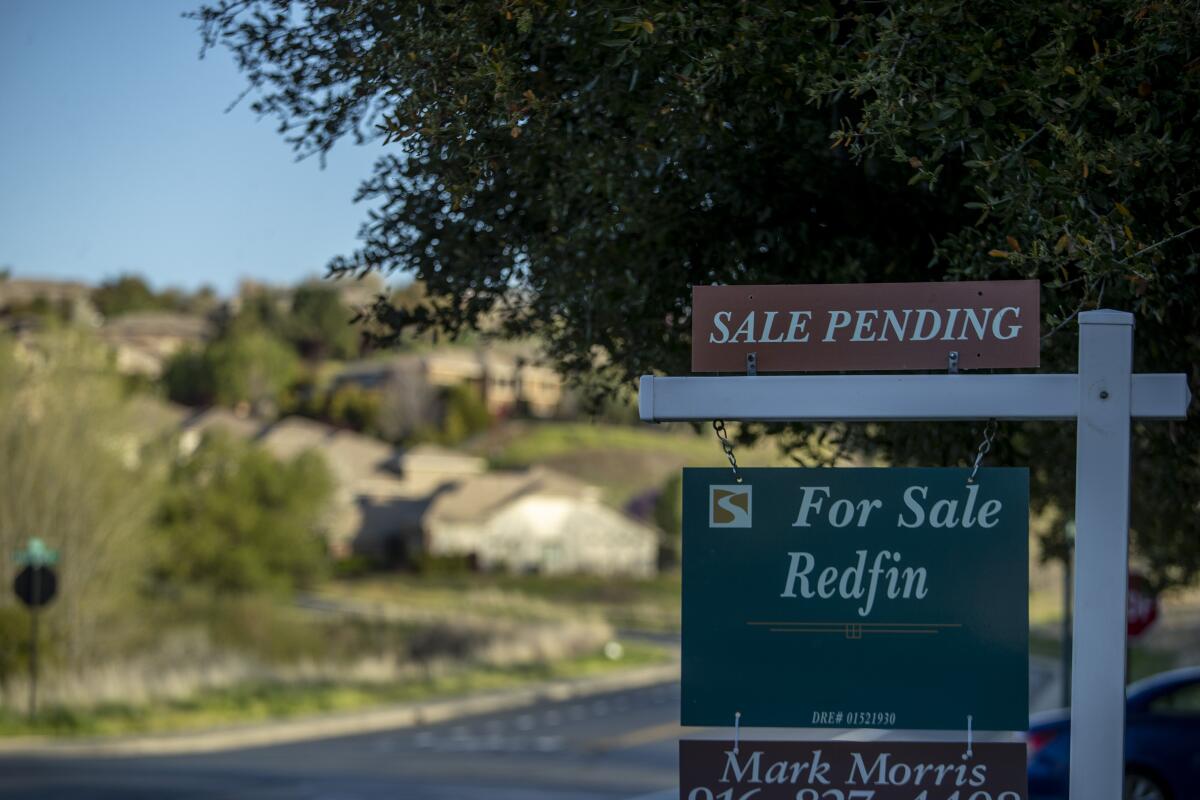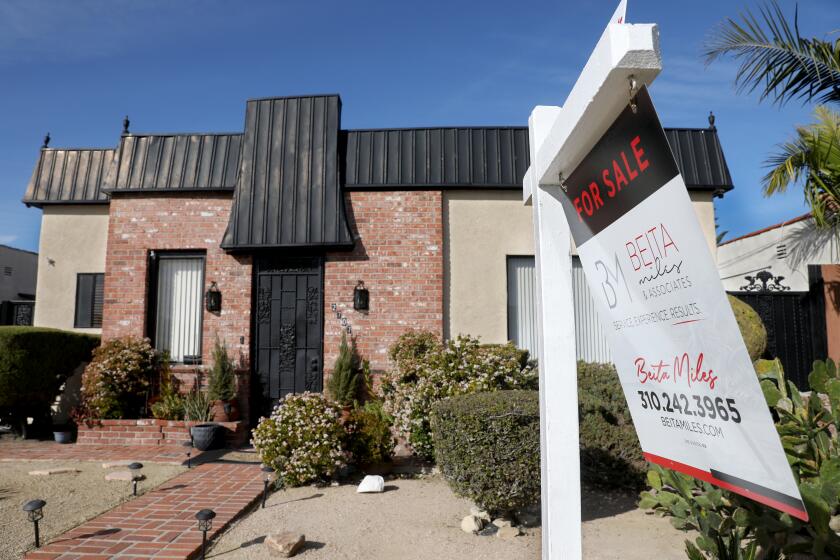People haven’t been this pessimistic about the housing market since 2011, data show

- Share via
Consumers have become the most pessimistic about housing since 2011, when home prices bottomed in the aftermath of the global financial crisis, data from the Federal National Mortgage Assn. show.
Fannie Mae’s Home Purchase Sentiment Index, or HPSI, dropped to the lowest level in more than a decade, as consumers expressed pessimism about home buying prospects. The index, which reflects consumers’ views on the housing market, has fallen from roughly 76 to 63 year over year, according to a release Monday.
Sentiment hasn’t been as bad since the post-crisis era, when home values plunged as borrowers struggled to make payments, leaving millions facing foreclosure.
The Southern California housing market is cooling and forcing buyers and sellers to adjust. Here is what you should know if you are in the market.
But this time, the concern is different — this is an affordability crisis. As the Federal Reserve raises its benchmark interest rate, rates on a 30-year fixed-rate mortgage have almost doubled year over year, standing at 5.43% in late July compared with 2.97% a year earlier, putting homeownership out of reach for more and more Americans. Sales of new U.S. homes fell to a more than two-year low in June.
“The HPSI has declined steadily for much of the year, as higher mortgage rates continue to take a toll on housing affordability,” Doug Duncan, Fannie Mae senior vice president and chief economist, said in a statement. “Unfavorable mortgage rates have been increasingly cited by consumers as a top reason behind the growing perception that it’s a bad time to buy, as well as sell, a home.”
Four of the index’s six components dropped month over month, including views on buying and selling conditions, home price outlook and job-loss concerns, Fannie Mae said. Consumers were most concerned about buying conditions. That concern changed the most year over year, with 76% of respondents saying it’s a bad time to buy.
Southern California’s housing market may be cooling, but demand among the ultra-rich for luxury condos is exploding, with multiple new properties looking to set sales records. How long can it last?
And although home price appreciation has been the story of the year, consumers are starting to say that the trend is over. The percentage of respondents who believe home prices will go up in the next 12 months fell to 39% in July from 44% in June, while the percentage who said home prices will go down increased to 30% from 27%.
With home price growth slowing and projected to slow further, Duncan expects a mixed reaction from consumers.
“Some homeowners may opt to list their homes sooner to take advantage of perceived high prices, while some potential home buyers may choose to postpone their purchase decision believing that home prices may drop,” he said.
The index gets the information about consumers’ home purchase sentiment from Fannie Mae’s National Housing Survey.
More to Read
Inside the business of entertainment
The Wide Shot brings you news, analysis and insights on everything from streaming wars to production — and what it all means for the future.
You may occasionally receive promotional content from the Los Angeles Times.












